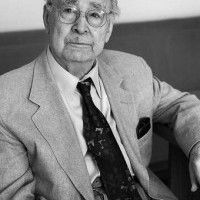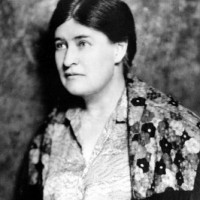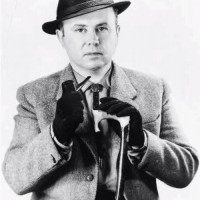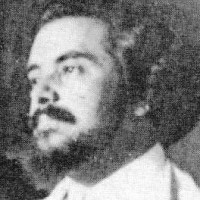Hungarian Septic Services, Ideology and Human Dignity, by Bradley J. Birzer.
No one I know personally who knew Thomas Molnar (1921-2010) has ever said a kind word about his personality. If anything, he gained notoriety, even among those who respected him, through an infamy of intolerance, often under the unimaginative guise and excuse of “not suffering fools gladly.” This, in part, helps explain the lack of almost any notice of his death by the conservative world in 2010. He passed into the next world without—really—even a brief sigh or a fond fare well from this one. Few even offered a bitter fare well. Almost all seemed to have simply forgotten the man.
A recent google search reveals almost as many hits for a Thomas Molnar Septic Tank Service in South Bend as it does for the deceased Hungarian scholar. Yet, at one point, he served as a mainstay for both Commonweal and National Review.
Whatever his deficiencies in personality, no one could claim Molnar did not possess a rather expansive genius. Even a cursory examination of his publications—in terms of books as well as articles—overwhelms the would-be researcher. As with many of the greats of his generation, he wrote widely on a variety of topics and in a variety of fields on his heroes such as George Bernanos, educational theories, intellectualism, and the confluence of media and ideology.
His prolific output revivals that of Russell Kirk, a man who inspired, intrigued, and perplexed the Eastern European. Though the two walked across North Africa together in the summer of 1963, Molnar’s published travel memoir mentions Kirk only as an eccentric travel companion who attracted the attention of innumerable Arab and Berber children because of his outlandish appearance.
The Michiganian offered his own praise of Molnar far more openly, considering the Hungarian’s early book on the history of intellectuals, The Decline of the Intellectual, to be one of the most important works of the century.
A Christian Humanism of Sorts
Much of what Molnar wrote and argued during his adult life would fit nicely into the realm of possibilities for those admired at The Imaginative Conservative. Yet, he was always more of a European conservative than an American one. He might very well have been the model—if somewhat imagined on the Austrian’s part—conservative for Hayek’s 1957 famous Mont Pelerin Address, “Why I am Not a Conservative.”
From an American perspective, Molnar might fit better into the category of reactionary than conservative. Admittedly, such labels are as arbitrary as they are problematic. But, Molnar was a man who admired Charles Maurras and many of the Spaniards allied with Franco, but who also actively despised the National Socialists and found himself imprisoned in Dachau at the end of the Second World War. Molnar’s counterrevolutionary streak was as anti-ideological as it was curmudgeonly and, as John Zmirak has so effectively argued, always contrarian. In the end, Molnar believed the communists and the fascists of all stripes to share more in common than not, especially in their embrace of modernity and Gnosticism.
Whatever brief intellectual flirtations Molnar had with the extreme right of his youth, by the 1960s, Molnar had returned to his childhood faith and embraced an orthodox—if somewhat rigid—Roman Catholicism. Certainly, one could place Molnar into the category of Christian humanist, a title, role, and idea to which he gave much thought and spiritual assent. When assessing Molnar’s role in the twentieth century, we will miss his profundity as a thinker if we do not take this Christian humanism into account.
Utopia and the Ideologues
Of his many works, Molnar’s 1967 book, Utopia: The Perennial Heresy, published in the final days of the greatness of Sheed and Ward remains, perhaps, his most intriguing and relevant to today’s problems. In it, Molnar analyzed what he considered the never-ending temptation in this world, the belief that man can achieve perfection by his own will and ability and without God. Of course, Molnar offers nothing profound or original in this. Great writers and thinkers throughout the Judeo-Christian tradition had recognized the origins of perfectionism in the devil’s temptation in the Garden.
Unlike many others, though, especially those who describe the first temptation in the bible in passing, Molnar presents a very complex argument against it, noting that even the very thought of perfection is evil. Yet, because of the fall, man easily slides into such dangerous thinking.
Read the complete article in The Imaginative Conservative
The Christian Humanism of Willa Cather, by Bradley J. Birzer
On Sunday, August 11, 2013, my family and I began our now-yearly odyssey into the West. As I write this, our vacation is ending, and I’m typing this from the second floor of a rented house in the Rockies, looking across my laptop out the window at Mt. Ouray.
In two days, our kids have pre-opening at their academy, back in Michigan, and the next morning I’ll attend the same for my job. I’m not quite ready to leave the glories of the American West, but, should I continue to care about a steady income and providing for my family, eastward I must return.
Some of my very first posts at The Imaginative Conservative were written three years ago on such a trek. I can no longer embark on annual trips without thinking of The Imaginative Conservative and without considering editorial mastermind Winston Elliott’s birthday (August 13), a day that will be celebrated some day in the Republic of Texas and, if it still exists, the United States of America.
A significant part of our yearly ritual and travel is my wife reading fiction to me as I drive. Dedra has one of the best reading voices I’ve ever encountered, and, as long as my children aren’t fighting with one another or with imaginary friends, I look forward to her reading almost as much as I look forward to the sites I’m about to encounter on our adventures.
Dedra can read anything and read it well, but she most often gravitates either to the mysteries of Ralph McInerny and Sharon McCrumb or to the fiction of Willa Cather. We both have adored Cather since college. With The Imaginative Conservative’s beloved John Willson, I try to read Death Comes for the Archbishop at least once year. I think a solid case could be argued for considering this novel the “Great American Novel” if such a label needs to be employed. Cather’s West is what the American West should’ve been, rather than what it was. In Cather’s vision, the West is humane, challenging, and, ultimately, in the best Ciceronian sense, cosmopolitan.
Cather’s life
Looking back a century and a half, it would probably not have been wise to have bet on the success of Cather. Born in Virginia, her parents moved her to extreme south central Nebraska (only miles from the Kansas line and only about fifteen miles from the geographic center of the 48 states). Oldest of seven children, her parents homeschooled (or its past equivalent) Willa with their neighbors, raising her around German, Polish, Bohemian, Moravian, Swedish, and Russian immigrants. American Indians arrived in Red Cloud from time to time, as did Americans of African descent. All of this immigration and community with the treeless backdrop of the Great Plains fascinated Cather. Here, as a young woman, she experienced what most sociologists only imagine in their wildest dreams. While the various peoples and peopling of the land mattered to Cather, so too did the land.
Then the Genius of the Divide, the great, free spirit which breathes across it, must have bent lower than it ever bent to a human will before. The history of every country begins in the heart of a man or a woman.
So wrote Cather of her first great heroine, Alexandra, in O Pioneers!.
Graduating from the University of Nebraska in Lincoln in 1895, Cather went east to work as a muck-racking journalist. She gained considerable attention and fame at the notorious but popular McClures and she gave herself fulltime to her fiction in 1912. Her many works include: April Twilights (1903); Alexander’s Bridge (1912); O Pioneers! (1913); The Song of the Lark (1915); My Ántonia (1918); Youth and the Bright Medusa (1920); One of Ours (1922; for which she won the Pulitizer Prize); A Lost Lady (1923); The Professor’s House (1925); My Mortal Enemy (1926); Death Comes to the Archbishop (1927); Shadows on the Rock (1931); Obscure Destinies (1932); and Lucy Gayheart (1935).
Sometime in the 1920s, Cather’s anti-progressive views became quite clear, and the left despised her. She died, horribly, in some literary obscurity, rescued only after her death.
Read the complete article in The Imaginative Conservative
Russell Kirk Defends Assassination with Natural Law Theory, by Bradley J. Birzer
Therefore a little knot of brave and conscientious men determined to save Germany and Europe by killing Hitler…
Read the complete article in The Imaginative Conservative
Remembering an Eastern Orthodox Prophet: Nicholas Berdyaev, by Bradley J. Birzer
One kind of weird but enticing academic puzzle for me is discovering and delving into the works of interesting figures of the 20th century who have been largely forgotten. And, by “interesting figures,” I mean especially those who espoused types of religious humanism and their allies.
TIC mastermind Winston Elliott feels the same way, and one of the purposes of founding TIC was to bring the memory of these humanists back to the public and honor each as a vital ancestor to our own broad cause in the twenty-first century.
Everyone remembers, for example, G.K. Chesterton, T.S. Eliot, C.S. Lewis, J.R.R. Tolkien, and, more recently, Flannery O’Connor and Walker Percy. Even if one hasn’t read any of their respective works, their names circulate with familiarity even in the darker corners of American civilization.
At a different, slightly lower level hover Irving Babbitt, Hilaire Belloc, Paul Elmer More, Willa Cather, Christopher Dawson, Jacques Maritain, Etienne Gilson, Josef Pieper, Walter Miller, Alexandr Solzhenitsyn, and Russell Kirk.
But only a very few remember eccentrics such as T.E. Hulme, Aurel Kolnai, Leo Ward, Sister Madeleva Wolff, Wilhelm Roepke, Romano Guardini, Gabriel Marcel, Owen Barfield, Theodore Haecker, David Jones, Tom Burns, and Bernard Wall.
Nicholas Berdyaev (1874-1948), a member of this last group, has been sadly neglected as well, at least by those in conservative and libertarian circles.
He was, not surprisingly, connected to many Christian Humanists of his day. He knew the Maritains well, and while C.S. Lewis mostly dismissed his work as a sideline show, Christopher Dawson considered Berdyaev’s thought central to the restoration of the 20th-century West.
The trump card, here, though is from a fellow Russian. A figure no less important or heroic than Alexandr Solzhenitsyn discussed Berdyaev briefly in volumes II and III of The Gulag. He was, Solzhenitsyn wrote, offering perhaps the highest praise possible, “a man.”
In volume II, he described Berdyaev as the ultimate person to reject Soviet terror.
So what is the answer? How can you stand your ground when you are weak and sensitive to pain, when people you love are still alive, when you are unprepared? What do you need to make you stronger than the interrogator and the whole trap? From the moment you go to prison you must put your cozy past firmly behind you. As the very threshold, you must say to your self: ‘My life is over, a little early to be sure, but there’s nothing to be done about it. I shall never return to freedom. I am condemned to die–now or a little later. But later on, in truth, it will be even harder, and so the sooner the better. I no longer have any property whatsoever. For me those I love have died, and for them I have died. From today on, my body is useless and alien to me. Only my spirit and my conscience remain precious and important to me.’ Confronted by such a prisoner, the interrogation will tremble. Only the man who has renounced everything can win that victory. But how can one turn one’s body to stone? Well, they managed to turn some individuals from the Berdyayev [sic] circle into puppets for a trial, but they didn’t succeed with Berdyayev. They wanted to drag him into an open trial; they arrested him twice; and (in 1922) he was subjected to a a night interrogation by Dzerzhinsky himself. Kamenev was there too (which means that he, too, was not averse to using the Cheka in ideological conflict). But Berdyayev did not humiliate himself. He did not beg or plead. He set forth firmly those religious and moral principles which had led him to refuse to accepted the political authority established in Russia. And not only did they come to the conclusion that he would be useless for a trial, but they liberated him. A human being has a point of view!”
In volume 3 of The Gulag, Solzhenitsyn wrote simply: Berdyaev was a “philosopher, essayist, brilliant defender of human freedom against ideology.”
Exiled from Russia in 1922 after surviving three Soviet trials against him, Berdyaev settled in Paris, living there until his death in 1948.
While in Paris, Berdyaev became an integral part of the Jacques and Raissa Maritain circle. Indeed, as Berdyaev remembers it in his fine autobiography, Dream and Reality, he and Jacques served as equal poles in the creation and perpetuation of the group. Though Maritain’s extreme Thomism struck Berdyaev as a form of Catholic ideology, he respected the French philosopher immensely. He did joke, however, that Maritain’s fear and rejection of Protestantism and Protestants was a strange element of the convert, implying a certain irrationality.
When Christopher Dawson and Tom Burns first formed the Order group in Chelsea, London, employing the resources of the publishing house Sheed and Ward to unify all humanists of British and Europe backgrounds, Dawson immediately sought out Maritain and Berdyaev. Each contributed to one of the best book series of the last century, the 16 volume Essays in Order. As it turned out, Essays in Order served as the one attempt in the twentieth century to bring all Christian Humanists together into a unified Republic of Letters.
When Essays in Order folded, Dawson continued the same project with a second friend, Bernard Wall, publishing a journal, Colosseum. Again, Dawson and Wall sought out and received the contributions and acclaim of Berdyaev and Maritain.
One of Berdyaev’s most interesting books–and presumably the reason Dawson thought so highly him–was his The End of Our Time, written between 1919 and 1923 and published for the first time in English in 1933 by Sheed and Ward. In almost every way, though clearly a Russian and a member of the Eastern Orthodox faith, Berdyaev anticipated the major arguments of the English-Welsh Roman Catholic Dawson.
In particular, Berdyaev stressed the primacy of culture and theological issues over politics and economics as truer forms of reality. Almost the entire western world, Berdyaev argued, had embraced some form of materialism after the collapse of Christendom. And, this moved the world rapidly toward unreality.
“We must begin to make our Christianity effectively real,” Berdyaev wrote, “by a return to the life of the spirit.” Economic matters, he continued, “must be subordinated to that which is spiritual, [and] politics must be again confined confined within their proper limits.”
read the complete article in The Imaginative Conservative
Mr. Kirk, please meet Mr. Burke: 1950
In the fall of 1950, Russell Kirk turned the ripe old age of 32. He had been publishing articles and reviews (and soon his M.A. thesis on John Randolph of Roanoke through the University of Chicago) since 1936. Even during college, academic journals had accepted his undergraduate work, assuming him to be a tenure-track professor.
Throughout his earliest publications, Kirk full explored the ideas of tradition and liberty, attempting to balance the sometimes tension-filled influences of Irving Babbitt, Paul Elmer More, Albert Jay Nock, and Isabel Patterson. Indeed, he immersed himself in any and every work imaginable, but he kept returning to these four.
When Kirk had written his M.A. thesis on John Randolph a decade earlier at Duke, he had encountered Burke as an intellectual inspiration. Almost certainly, Kirk had encountered Burke even earlier through his beloved New Humanist undergraduate literature professor, John Abbott Clark. From his first encounter with the Anglo-Irish statesman, Kirk probably had liked Burke. Certainly, there’s no evidence to indicate the opposite. While an undergraduate at Michigan State, he also encountered the works of T.S. Eliot, but he’d dismissed his Anglo-American contemporary as a “fraud.”
Read the complete article in The Imaginative Conservative



